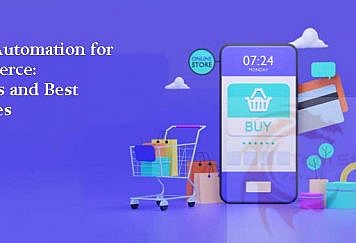Industrial internet of things (IIoT) is a newer form of technology that has begun to change industrial processes in radical ways. Though it is still a relatively new iteration of industrial technology, IIoT is beginning to solidify itself as a staple in the industry.
As the impact of IIoT continues to grow, it is likely that it will have the potential to move beyond its current applications to help in even more new and exciting ways. Being aware of the potential of IIoT and the ways that it may evolve can give one a more nuanced understanding of industrial processes and how they are evolving in today’s digital age.
What Is Industrial IoT?
If you’re like most people outside of the tech or manufacturing industries, you’re probably wondering what IIoT is. IIoT can be defined as a web of connected smart devices used in industrial settings or settings in which things are manufactured.
These interconnected smart devices work together to gather, monitor, and analyze data within these settings. These networks of smart devices are able to provide a more holistic view of industrial processes and can give people a deeper understanding of how these processes can be altered or improved in certain areas.
IIoT can be used to uncover insights about industrial processes that a human wouldn’t typically be able to detect. In addition, it can help inform decisions about maintenance and updates to machinery.
The Application IoT to Industrial Settings and Beyond
Before being applied to industrial settings. IoT technology was meant to be applied to consumer products. IoT technology helped companies gain a deeper understanding of things such as consumer preference while also providing consumers with more convenience and accessibility when it came to connectivity across products.
When this technology was applied to industrial settings, it was found that it could be very useful in monitoring and gathering data about industrial processes. This data could then be analyzed in insightful ways that could help inform decisions that could improve processes.
While IIoT is still a recent phenomenon in industrial settings, it’s impact can easily spread into new, closely related fields. For example, supply chains involving various entities could benefit substantially from having a network of connected smart devices that keeps all people at various levels of the supply chain up-to-date with the status of different materials and products. If this were to be implemented, it could result in more efficient and smoothly running supply chains.
New Industries for Automation and Artificial Intelligence Specialists
In addition to spreading into new fields, it’s likely that IIoT will create a greater demand for individuals qualified to work in various automation and artificial intelligence careers. This increase in job demand for those with specialized knowledge can help bring about advancements and innovation in the fields of automation and artificial intelligence.
As such, IIoT has the potential to revolutionize not only work processes in industrial settings but also the fields of automation and artificial intelligence.
Industrial IoT and an Evolving World
As the world evolves and changes in many ways, the widescale adoption of IIoT is likely to take place. In addition to improving processes in manufacturing, IIoT has the ability to radically improve supply chain processes along with many other industries that will soon discover the value of this technology.
Though the application of IoT technology to the industrial space is still in its infancy, it’s likely that the technology will become more powerful and effective in the near future.
Follow TechStrange for more Technology, Business and Digital Marketing News.





